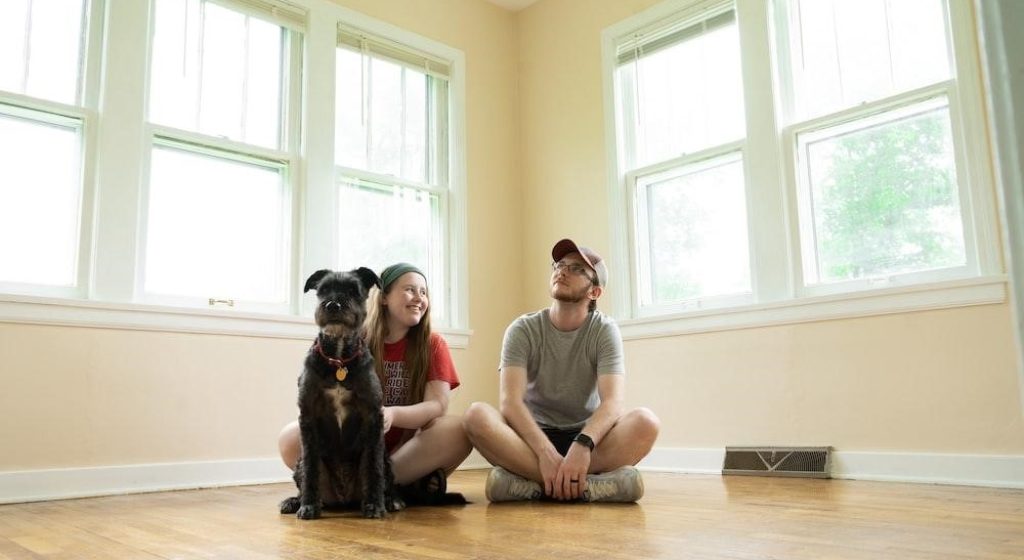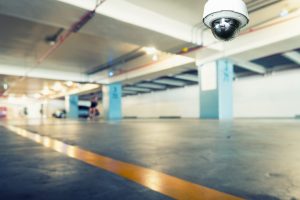Homeownership has many rewards but also comes with challenges and risks, some of which you can’t plan for. That’s why your property’s security should be among your top concerns before, during, and after move-in. This way, you can protect your new home against break-ins, fires, and other threats you can’t anticipate.
With so many considerations, the security assessment and installation processes can overwhelm new homeowners. Read on to learn what to look for in your property’s security and how a professional monitoring team can help.
Assess Your Home Security Before and After Moving In
Before moving in, you should thoroughly judge your new property’s security, including its biggest vulnerabilities and potential limitations. For example, improperly secured doors leave you susceptible to break-ins. Meanwhile, tree branches can block camera footage, and nearby traffic can limit audio detection. Consider hiring a professional home security team to inspect your property to determine the best security plan.
Continue to look for potential issues as you conduct repairs, move in, and adjust to the house, including these security concerns:
- Doors that don’t easily close
- Faulty window locks
- Windows facing streets or non-residential properties
- Lack of lighting near entry points
- Swaying trees and camera blind spots
- Potential hiding spots
- Broken or unreliable fencing
- Defective smoke and carbon monoxide detectors
- Frequent power outages
- Unreliable internet connections
Install a Comprehensive Security System
Alarm systems turn your various layers of security into a singular, exhaustive defense. Most systems include their own cameras, sensors, and gear, though you can easily integrate other devices for a more customized setup.
Depending on your settings, your security system will notify you of unusual camera activity, sound detection, and various other alerts from one app. Most apps also let you arm your devices when you head to work and disable them when you return for maximum convenience. You can even set chain reactions, such as allowing your window sensors to activate your alarms.
24/7 Monitoring
The best home security systems feature remote access and around-the-clock professional monitoring. This level of protection guarantees your property is always secured, even when you’re away from home. So, if you can’t respond to an alert, a trained professional from a central monitoring station can. This is especially critical for emergencies, as a security agent can contact the authorities while you prioritize safety.
Security monitoring is also beneficial for reducing false alarms. For example, a security agent can check on an activated glass break sensor to respond accordingly. Using your cameras and other devices, they’ll determine if the situation is an immediate threat or, for example, if your cat knocked down a vase. By reducing false alarms, you can limit how often you respond to alerts and improve your trust in your security plan.
Secure Your Windows and Doors
Your entry points should be among your top home security priorities, ensuring no intruders can enter your home without raising an alarm. If you’re using security cameras, ensure they can capture all doors and primary windows. Then, consider adding additional security measures, including:
- Updated locks
- Deadbolts
- Door frame reinforcements
- Window security film
- Motion and contact sensors
- Audio and glass break sensors
Upgrade and Rekey the Locks
You never know who had access to your property before you moved in or where stolen, borrowed, or lost keys ended up. So, rekeying should be one of your first tasks after purchasing your new home.
Replacing your locks altogether instead of just rekeying them is often cheaper if you’re considering replacing them later. Before rekeying, inspect each exterior door and ensure they all use properly installed deadbolts. Then, research the security brands of the existing locks, as many basic models are susceptible to lockpicking.
Invest in Automatic Door Locks
Electronic door locks defend your entry points and make them more convenient. Various automatic locks provide access through biometrics, apps, keypads, and other useful tools. This kind of versatile system lets you unlock the doors when you forget your keys and allows guests to enter when you’re not at home. Paired with an alarm security system, automatic door locks let you track every door use.
Install Audio and Contact Sensors
Various door and window sensors can easily connect to your alarm security system, immediately notifying you of potential activity. Combined, these devices give your home an extra layer of security coverage.
Contact sensors detect movement, such as an opened door or a pound against a window. Audio devices listen for specific frequency patterns, including a shattering window. These glass break sensors often cover more space than cameras, especially indoors. However, they must be placed in specific locations for maximum efficiency.
Outdoor Security
The durability and safety of your property’s exterior also impact your home’s overall security. First, examine the edges of your yard and ensure all fences are reliably secured and are challenging to scale. If your driveway is open, consider adding a gate with automatic locks. Then, establish a thorough surveillance camera plan that covers all corners and potential paths around your home.
Extensive Lighting
Just the sight of your security cameras may keep potential intruders away from your property. And you can usually heighten this effect with ample lighting. Invest in solar, overhead, and motion sensor lights near all entry points and along all potential paths.
Then, use your surveillance cameras at night to detect other dark spots and potential issues to capture all activity. Adequate lighting can be beneficial for identifying intruders and reporting crimes to the police, so it’s often worth the investment.
Neighborhood Watch Programs
Neighborhood watches are local community organizations dedicated to improving safety and preventing crime. Getting involved with these programs can help you find resources and learn about the top security concerns in your new neighborhood. As you settle in, your neighborhood watch may help you report suspicious activity, find missing pets, or improve your home security system.
Importance of Home Security for New Homeowners
Installing a dependable alarm system protects you, your family, and the investment you call home. When paired with 24/7 monitoring, these security solutions provide peace of mind that your home is safe — even when you’re away.
Request a quote from Alarm Detection Systems, one of the largest alarm firms in the country, to learn what your property needs for its best security setup.
About Alarm Detection Systems, Inc.
Alarm Detection Systems is one of the largest alarm firms in the country. Family-owned since 1968, we provide business alarms, fire alarms, card access, security cameras, and home security systems. Proudly servicing Chicagoland, Northern Illinois, Northwest Indiana, and Southern Wisconsin in the Midwest. Call us at 630.844.6300 for more information.
In Colorado, we service all of Denver, Boulder County, Northern Colorado, the Eastern Plains, and Colorado Springs. Call us at 1.800.446.7519 for more information.



